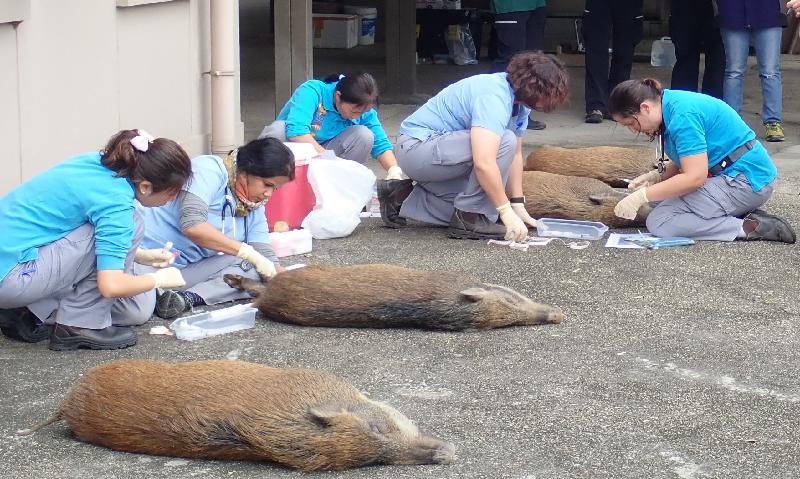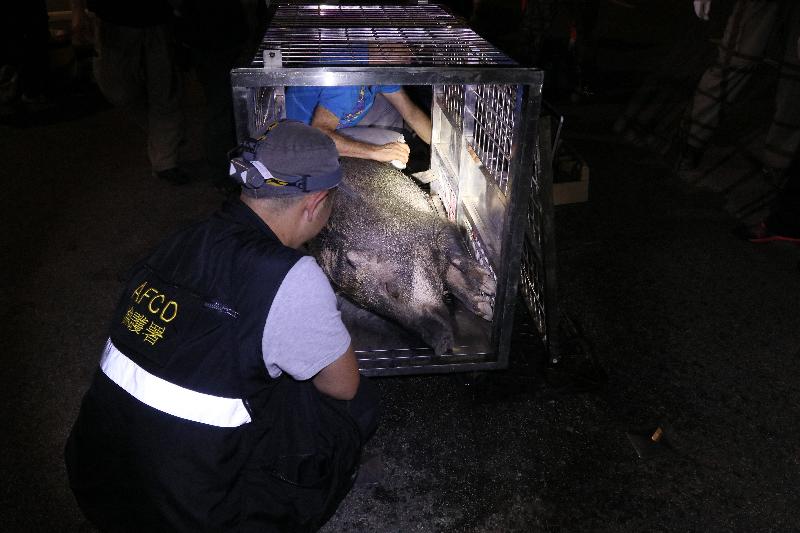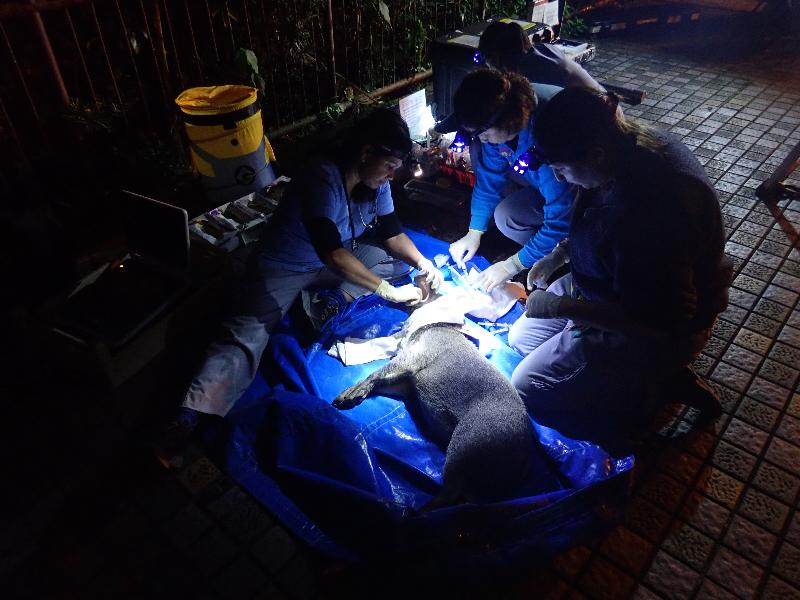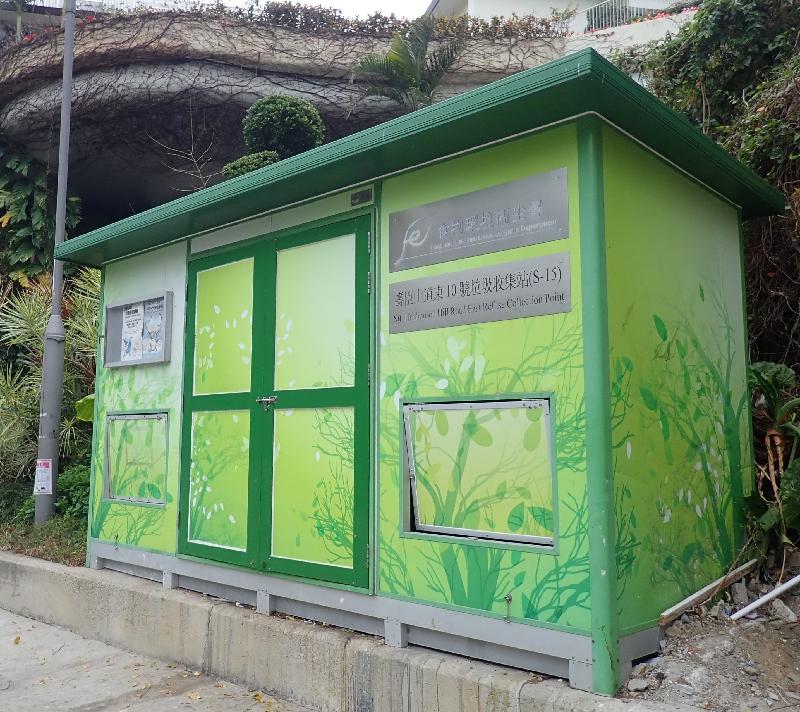AFCD combats illegal feeding of wild pigs (with photos)
*******************************************************
A spokesperson for the AFCD said, "Feeding wild animals not only leads to the loss of their foraging instincts and changes their behaviour, but also poses nuisance and environmental hygiene problems. Members of the public are urged not to feed wild animals. People feeding wild animals in feeding ban areas may also breach the law." The spokesman stressed that wild animals, including wild pigs, have foraging instincts and food in nature in Hong Kong's countryside can meet their needs, so feeding by humans is unnecessary. The AFCD strives to educate the public not to feed wild animals and learn more about the animals. The AFCD has commissioned Ocean Park Conservation Foundation Hong Kong to offer educational activities and eco-tours in the feeding ban areas during weekends, with a view to enhancing public knowledge and spreading the message of no feeding of wild animals.
Moreover, in order to alleviate the nuisance caused by wild pigs in residential or public areas more effectively, the AFCD has consulted the Legislative Council Panel on Environmental Affairs, other related advisory bodies and the District Councils earlier about the strategies for managing wild pigs. After a comprehensive review of the strategies, the AFCD is adopting a multi-pronged approach, namely managing wild pig nuisance, reducing food attraction for wild pigs, strengthening public education on no feeding of wild animals, and enhancing public understanding of wild pigs.
The AFCD launched the Capture and Contraception/Relocation Programme (CCRP) in 2017 as a pilot scheme to address wild pig nuisance in urban areas. As of March 2019, 45 operations were conducted under the pilot scheme, during which 166 wild pigs were captured. A total of 121 captured wild pigs were relocated to remote countryside areas, while 78 deemed suitable and with good body condition were given contraceptive treatment or sterilised to control the number of wild pigs in the long run. On the other hand, to safeguard public safety, the AFCD will humanely put down individual wild pigs in view of the danger they pose to public safety.
To reduce nuisance caused by wild pigs and monkeys searching for food at outdoor refuse facilities, the Food and Environmental Hygiene Department (FEHD) has improved a number of affected refuse collection facilities including stabilising rubbish bins, installing doors or walls for refuse collection facilities, and using wildlife-proof litter bins. The AFCD, the FEHD and the Environmental Protection Department are conducting a consultancy study to improve the design of rubbish bins, which will be deployed for field trials in the first half of this year in areas that are wildlife nuisance black spots. If the new designs can effectively minimise the scavenging for food from rubbish bins by wild pigs and monkeys, the FEHD will deploy the newly designed bins to suitable sites when appropriate.
Currently, there is a dedicated team in the AFCD for the management of wild pigs with six members. In order to alleviate the nuisance caused by wild pigs in residential areas more effectively, the AFCD has temporarily deployed eight extra staff from other divisions to assist in wild pig management. In the 2019-20 financial year, the AFCD will increase the manpower responsible to manage wild pig nuisance to 26 staff members, and deploy additional staff during CCRP operations.
Members of the public are also suggested to take heed of the following advice when they encounter wild pigs:
- Keep calm, stay away and leave wild pigs undisturbed;
- Do not approach any wild pig, including piglets;
- Do not attempt to drive wild pigs away as it is dangerous to provoke them;
- Hide behind barriers such as parapets or fences and wait until the wild pigs leave before you proceed; and
- Do not feed wild pigs.
If a wild pig is found causing nuisance, injured, trapped or wandering in an urban area, members of the public can call 1823 to notify the AFCD for necessary follow-up actions. When a wild pig poses immediate threats to life and property, the public should make a report to the police by calling 999 for urgent assistance.
Ends/Thursday, April 4, 2019
Issued at HKT 15:20
Issued at HKT 15:20
NNNN








